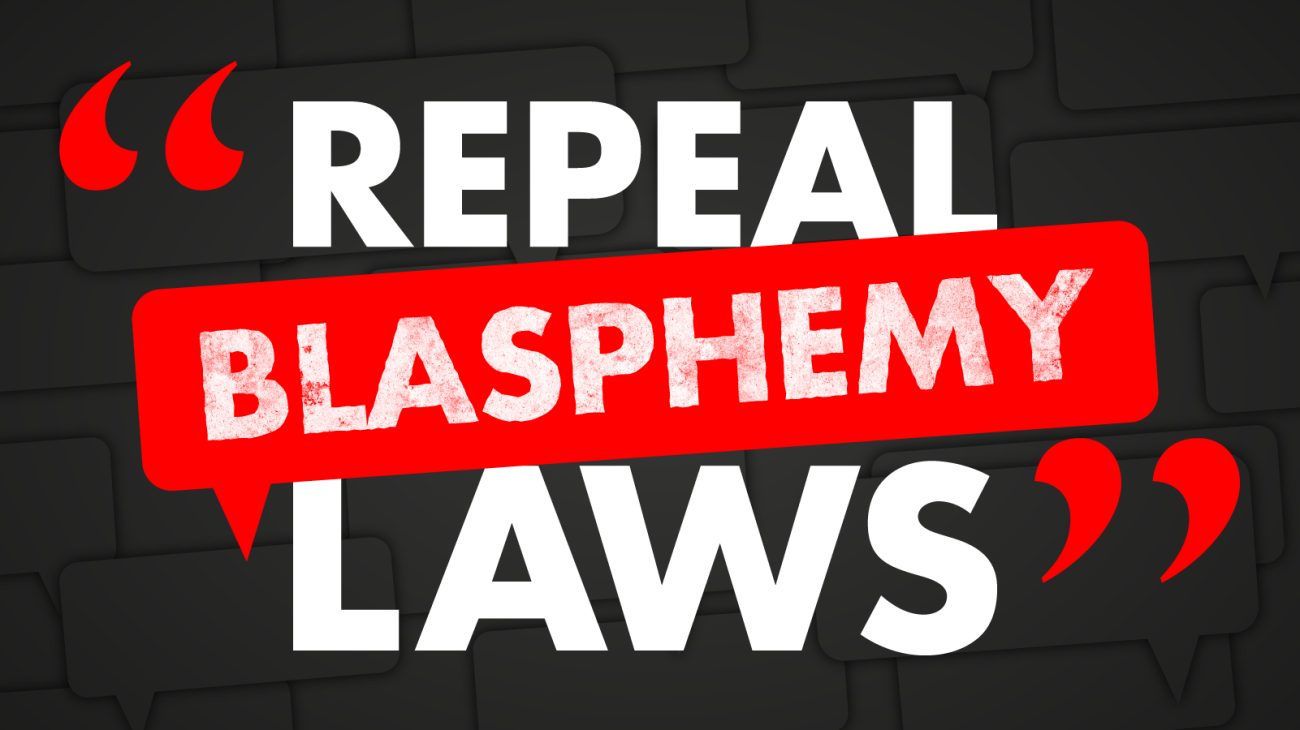NSS calls on Scottish government to repeal blasphemy laws
Posted: Tue, 20th Mar 2018
The National Secular Society has called on the Scottish government to repeal its blasphemy laws after it emerged that the Scottish National Party's governing body is to consider the measure.
This weekend the Sunday Herald reported that the SNP's National Council would debate a motion put forward by the party's Leith branch to remove the blasphemy laws this week.
The motion calls for "the abolition of the archaic common law crimes of blasphemy, heresy and profanity to the extent that they remain law in Scotland" and says the measure is "long overdue".
It says blasphemy laws are used in much of the world to "criminalise freedom of belief and expression". It adds that repealing them would "strengthen Scotland's capacity to speak out against human rights abuses under the guise of blasphemy and heresy elsewhere in the world, as well as removing once and for all the possibility that the Crown Office and Procurator Fiscal service could prosecute on such grounds here".
The SNP National Council serves as the party's governing body between national conferences. Its decisions become party policy unless they are overturned by conferences. The SNP currently governs in a minority administration in the Scottish parliament, with the support of the Green party.
Alistair McBay, the NSS's spokesperson in Scotland, welcomed the motion and said the issue was "remarkably straightforward".
"Scotland's blasphemy laws are ridiculous relics. Their continued existence leaves open the possibility that religious reactionaries could use the law to silence others' democratic right to express their views freely.
"They also undermine solidarity with freethinkers and religious dissidents around the world. If politicians are to defend those persecuted for their beliefs when they interact with their counterparts abroad, they must present a consistent, principled stance. That means they must take on the religious lobby at home."
The NSS played an instrumental role in the removal of the blasphemy law from the statute books in England and Wales in 2008. The NSS continues to campaign against blasphemy laws and de facto blasphemy codes.
Blasphemy has been a crime in Scotland since 1690. It was technically punishable by death in Scotland until 1825. In 1697 Thomas Aikenhead, a 20-year-old medical student from Edinburgh, was executed for the 'offence' after comments he made in a casual conversation were overheard.
The laws were last explicitly used in 1843, when Edinburgh bookseller Thomas Paterson was imprisoned for selling 'blasphemous' literature.
Last year a report from the US government found laws restricting freedom of expression on religious issues in 71 countries. The 2017 Freedom of Thought Report, from the International Humanist and Ethical Union, said free thought on religion was in "a pattern of regression on a global scale" and 85 countries 'severely' discriminated against non-religious individuals.
On Monday New Zealand's government introduced legislation to repeal the country's blasphemy laws. Blasphemous libel is listed in New Zealand's Crimes Act, where a punishment of up to a year in prison is outlined. The offence has not been prosecuted since 1922, when it was unsuccessful.
Last year the NSS also called for the repeal of Ireland's blasphemy law after Irish police opened an investigation into Stephen Fry over comments he made criticising God in an interview.
Meanwhile the NSS has welcomed the decision by MSPs to repeal Scotland's Offensive Behaviour at Football Act. The NSS cautioned against the introduction of the legislation in 2011, warning Scotland's Justice Committee that the proposed new law was "ill-considered" and posed a threat to freedom of expression.
MSPs voted to abolish the law last week, defeating the Scottish government by 62 votes to 60. All four opposition parties backed the repeal.
While you're here
Our news and opinion content is an important part of our campaigns work. Many articles involve a lot of research by our campaigns team. If you value this output, please consider supporting us today.








